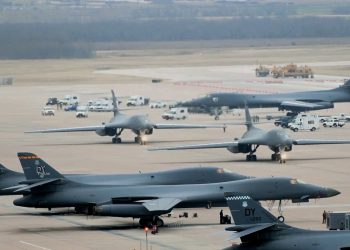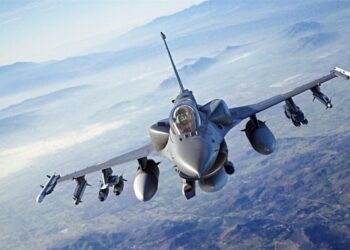Agence France-Presse, A scramble for a piece of the world’s largest fighter plane deal in over a decade moved into its final stage Friday with India examining the final bids from global weapons giants.
Indian defense ministry and industry sources said the choice appeared to have narrowed down to the Russian-built MiG-35 and MiG-29 aircraft, and U.S. offerings the Lockheed Martin F-16 and Boeing F-18.
A top defense procurement committee meeting had been expected to result in an announcement of the vendor of the 126 war planes, but an official statement late on Friday only said the tender has been “fine-tuned.”
The deal is potentially worth $9 billion to $10 billion.
Also in the race to replace a chunk of India’s aging fleet of 700 MiG-21s are Eurofighter’s Typhoon, Saab’s Gripen and Dassault’s Rafale and Mirage — although price considerations have left these contenders at a disadvantage, defense officials and industry sources said.
“The proposals from the likely contenders would first be technically evaluated by a professional team to check for compliance with the IAF’s [Indian Air Force] operational requirements,” the statement said.
“The vendors are required to provide life-time support and performance-based warranty for the aircraft,” it said.
Defense sources added the IAF will buy 18 jets off the shelf and build the remaining planes under license in India.
The contract — described as the world’s biggest fighter jet deal in over a decade — will be the first time India’s huge defense establishment has bought fighters after evaluating rival bids through a global tender.
The statement also said the deal would be subject to so-called “offset obligations” — in that a large part of the value of the deal will have to be spent in India.
The Indian military introduced this clause into all major defense deals in the mid-1990s as a way of protecting itself from non-delivery, as well as boosting its own domestic industry.
Defense ministry spokesman Sitanshu Kar said the selection process would be “transparent and fair.”
“Indian defense industries should also get an opportunity to grow to global scales,” he added.
With U.S. offerings seen has having a strong chance, the deal could also mark a shift away from India’s traditional dependence on Russian hardware.
Ties between Moscow — which meets 75 percent of India’s military needs — and India are now bumpy due to a delay in the delivery of a Russian aircraft carrier and acrimony over escalating Russian export costs.









